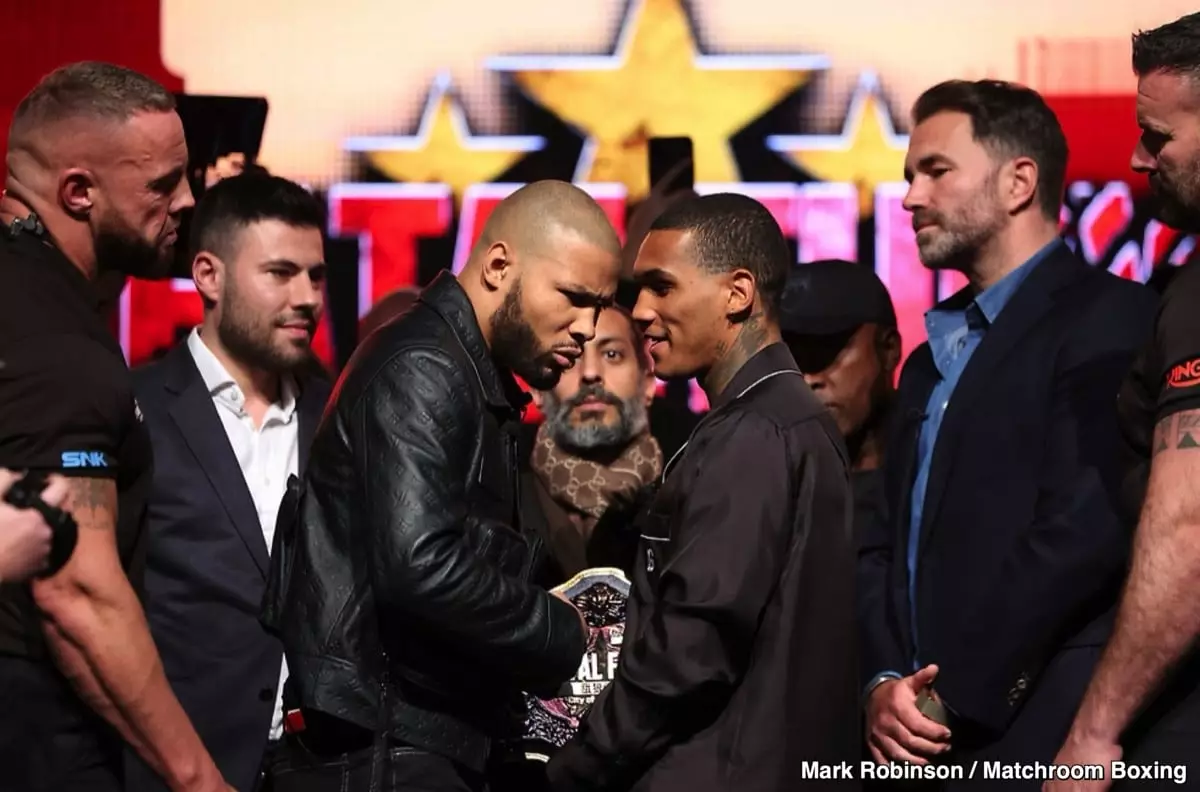As the anticipation for the DAZN PPV showdown between Conor Benn and Chris Eubank Jr. mounts, fans and analysts alike are left pondering the true nature of the animosity between these two fighters. Benn has gone as far as to label his feelings towards Eubank as “hate,” claiming he detests what Eubank embodies as both a boxer and an individual. This raw sentiment amplifies the stakes of their impending battle, igniting a narrative filled with emotional intensity. Such declarations elevate the bout from mere sporting event to a clash of personal vendettas, which is what draws viewers into the fray. It raises an important question: Is this hatred genuine or simply a marketing tactic to galvanize interest and boost pay-per-view sales?
Eubank has refrained from using the term “hate,” yet it is evident that he represents an opposing persona, contrasting sharply with Benn’s character. This divergence hints at deeper, unspoken conflicts that may go beyond the superficial rivalry we see on the surface. The narrative created by their conflicting personalities feeds into the age-old trope of good versus evil within the arena. It seems that the emotional gambit both fighters are playing may well be a double-edged sword—heightening public interest while simultaneously putting immense pressure on both combatants to perform.
The Stakes of Victory and Defeat
With the fight looming, the stakes are immeasurable for both competitors. Benn, boasting an undefeated record of 23-0 (14 KOs), has communicated a fierce conviction that he will dispatch Eubank, declaring he will not entertain notions of a post-fight handshake, should he triumph. This sentiment reflects not just ambition but a deeply entwined psychological warfare designed to unsettle his opponent. His commitment to vanquishing Eubank seems to stem from a desire for vindication, coupled with a troubling need to establish dominance over a long-standing rival. One cannot ignore the role that psychological factors play in combat sports; they can oftentimes be as decisive as sheer physical prowess.
Conversely, Eubank’s record of 34-3 (25 KOs) carries a weight of expectation that bears down upon him. The prospect of defeat looms large for both men, but for Eubank, losing to someone he perceives as a lesser fighter could be devastating— potentially crippling his future prospects in the sport. The repercussions of this fight may reverberate not only through ranking systems and title opportunities but could also provoke existential questions about their careers. The potential for one fighter to retire the other hangs palpably in the air, a narrative twist that further intensifies the urgency of the confrontation.
Motivation Beyond the Ring
Benn’s relentless drive is particularly salient; the thought of losing to Eubank has reportedly compelled him to push his limits, waking up at the crack of dawn to train rigorously. What drives this relentless pursuit? If we take Benn’s remarks at face value, there are “personal reasons” fueling his desire for victory over Eubank that remain shrouded in mystery. This cryptic statement is tantalizing—it beckons the question of whether a greater, perhaps psychological, impetus is in play beneath the surface rivalry.
However, if Benn does emerge victorious, can he really consider retiring Eubank and pivoting back down to the 147-pound division? Would a win translate to “retirement” for Eubank, or merely signify a momentary setback? Eubank, on the other hand, has eyes on Canelo Alvarez if he clinches victory, suggesting a broader ambition that extends beyond Benn. These aspirations present an intriguing counterbalance to the entrenched animosity—proving that while the rivalry drives them, their careers necessitate strategy and foresight.
The Absence of a Handshake
As the clock ticks down to their fight night, one refrain echoes throughout the media: the potential absence of a handshake between the fighters. Benn’s vehement opposition to the post-fight gesture of goodwill signifies an intense personal rivalry that transcends the sport itself. It is as if the handshake represents a closure he is unwilling to offer Eubank, thereby tacitly affirming the spirit of their dispute. Both fighters understand that this clash signifies more than wins and losses; it symbolizes a broader confrontation between two differing ideologies and paths in the sphere of boxing.
The looming bout encapsulates all the drama and tension boxing fans crave. With every tick of the clock leading up to their encounter, the line between sport and personal vendetta becomes increasingly blurred. The intricacies of their rivalry promise to engender an electric atmosphere, one in which the outcome will shape their futures in ways they have yet to fully comprehend.


Leave a Reply